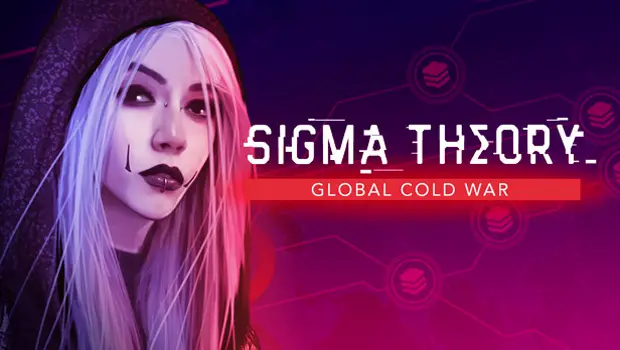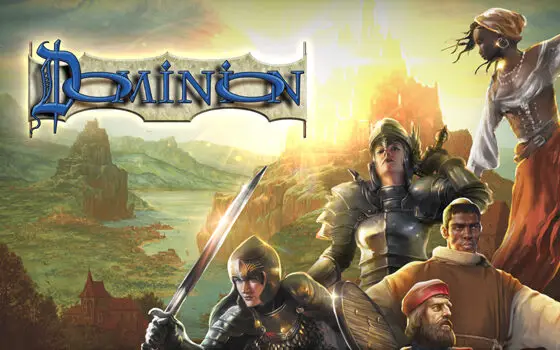Near-Future Espionage
Originally released on PC, Sigma Theory casts the player as a spymaster in a cyberpunk near future. Also known as Sigma Theory: Global Cold War, Mi-Clos Studio, Goblinz, and FibreTIgre developed the game with PID Games publishing it for Android. While it doesn’t succeed at everything it tries, it offers a tense and unique experience.
This espionage strategy game tooakes place in the 2030s, shortly after the development of a scientific principle called Sigma Theory. The titular Theory allows for sudden and rapid technological advances. This has thrown off the global balance of power, with nations racing to monopolize the new breakthroughs.
Players take control of their Country’s Sigma Division. Their objective is to lead their spies and scientists to develop at least 15 new technologies and complete the Sigma Project. However, there’s no prize for second place, and the other nations will do anything to come out on top. You must protect your scientists while using your agents to recruit or abduct more from rival Countries. Players can’t rely on force to solve every problem, however, as doing so risks plunging the world into Nuclear War.
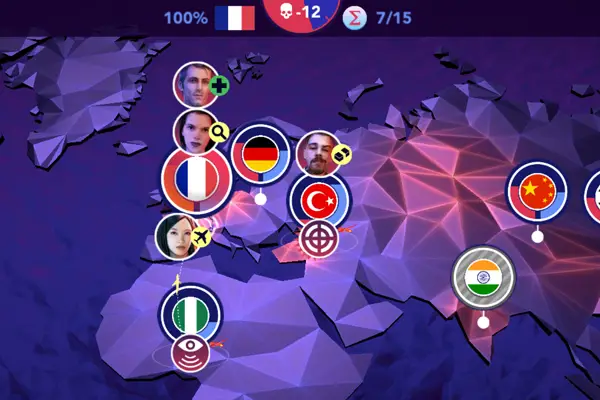
Spies, Scientists and Diplomats
Before beginning their campaign, players first need to recruit their Agents. The roster is initially limited, though players unlock new Agents based on their actions in-game. This gives Sigma Theory a roguelike quality, where some of your progress carries over between runs. Agents have a variety of Traits governing their skill in tasks such as Hacking, Combat, Seduction and more. Other traits dictate their behavior, with some Agents disobeying orders they disagree with. Players must also read up on each Agent’s backstory and pass a conversation minigame to enlist their services.
Most of Sigma Theory takes place on a world map reminiscent of XCOM’s Geoscape. It shows the countries involved in the race for Sigma and the location of the player’s agents and other assets. This is where players issue orders to their Agents, with most actions taking a certain number of days to execute. Sigma Theory bases the success chance of a given operation on a mix of Traits and the Country’s Alert Level. This score represents how suspicious they are of you and will go up or down based on your activity.
Each Country also has a Diplomatic Opinion that players need to keep their eyes on. This influences how likely countries are to accept specific requests, such as research agreements and prisoner exchanges. If ther Diplomatic Opinion drops to 0, they’ll declare War on you. This maxes out their Alert Level and adds to the Doomsday Clock every in-game day, bringing you closer to Nuclear War. Of course, players can end the War through diplomacy, but peace may mean sacrificing valuable resources.
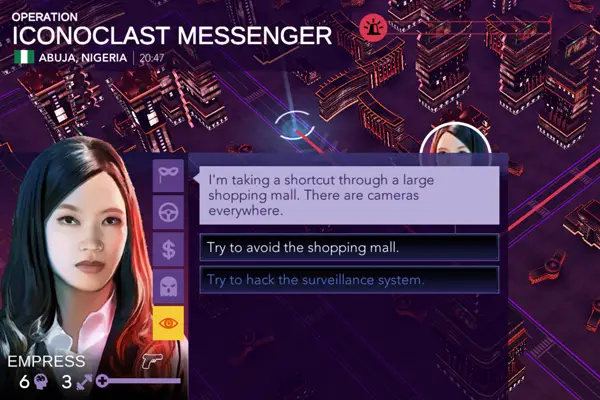
Visual Novel XCOM
Diplomatic talks take the form of a conversation minigame. Each Diplomat has two traits, which the player’s Agents can uncover by investigating them on the World Map. Players then engage the Diplomat in conversation, picking dialogue options that make them more agreeable to their cause. For example, an Arrogant Diplomat can be easily swayed by flattery, while Cowards are vulnerable to threats. You can also send your Agents to find evidence and blackmail them into playing ball. Depending on what players say and offer, the result can be anything from a Diplomatic boost to recruiting one of their scientists.
The other, more elaborate minigame is Extractions, which plays out like a combination of a board game and a visual novel. As the Agent flees through the city, they’ll encounter various obstacles and opportunities. Players usually have two or three options on how to proceed, with the results influenced by the Agent’s Traits. For example, agents with the Wheelman Trait get a significant bonus for car-related actions. The Country’s Alert Level determines the Extraction’s difficulty, including how quickly police react to illegal activities. If the Extraction is quiet and bloodless, your Agent may get away without repercussions. Alternatively, bloody shootouts can push you closer to open War. Your Agent might even be killed or captured if things go especially poorly.
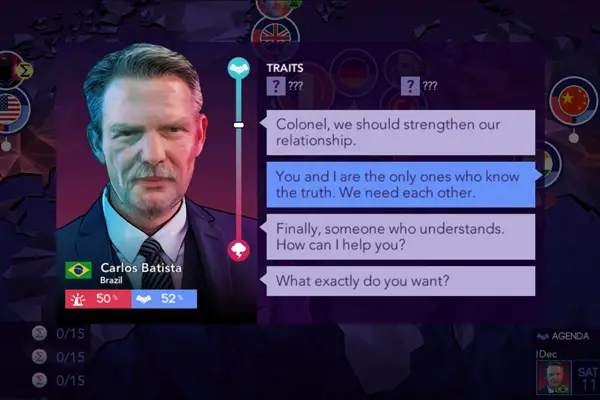
Great, but Imperfect
While all that might seem complicated, Sigma Theory’s pseudo-turn-based gameplay makes it tense but not overwhelming. It does suffer from the XCOM problem, where failures compound each other, making the game harder the worse you do. However, I never fell into a death spiral the way you can in the XCOM games. Sigma Theory’s campaigns usually only take a few hours, so restarting isn’t as much of a hassle as it could be.
My only real critique is the writing. The dialogue can be very clunky, and even the pre-scripted scenes feel stilted and artificial. The ending also really comes out of left field, and I wasn’t satisfied with the reveal of what Sigma Theory is. The game also features a hidden moral choice determining which ending the player gets. While I’m okay with it in Theory, the game never tells you that this system exists.
Despite these complaints, Sigma Theory is not getting escaping without a recommendation. There’s room for improvement, and the Android port is missing some content from the PC game. It is also probably not going to appeal to everyone. However, Sigma Theory is worth buying if you’re in the market for a tense, cyberpunk espionage sim.
Is It Hardcore?
Absolutely!
Despite some mediocre writing, Sigma Theory offers a tense and highly engaging cyberpunk espionage strategy experience.
















